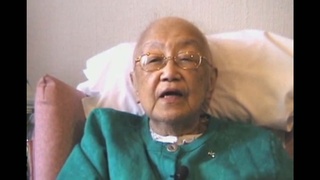Interviews
Great grandfather working in Hawaii
My great-grandfather was a sugar worker and in those days you were a contract worker. You not only had to pay for your transportation to Hawaii but you also had to pay for your rent and food and all that good stuff before you actually got net pay. I’m not exactly sure how long his contract was for, but at least three to five years I believe. He actually was working on the Big Island.
After whatever time it took for him to pay off the transportation part of it, he left the plantation because he knew that was too difficult a way of making a living. He then was a stowaway on a boat from the Big Island to Maui.
When he was there on Maui he went to the old hotel called the Pioneer Inn and somehow convinced the owner to hire him and train him as a bartender. He actually started as a bartender there and he learned most of his English there and he got to see how people interacted and got to overhear a lot of interesting conversations, especially in a bar where people say things where they wouldn’t say anywhere else.
Date: April 25, 2018
Location: California, US
Interviewer: John Esaki
Contributed by: Watase Media Arts Center, Japanese American National Museum














